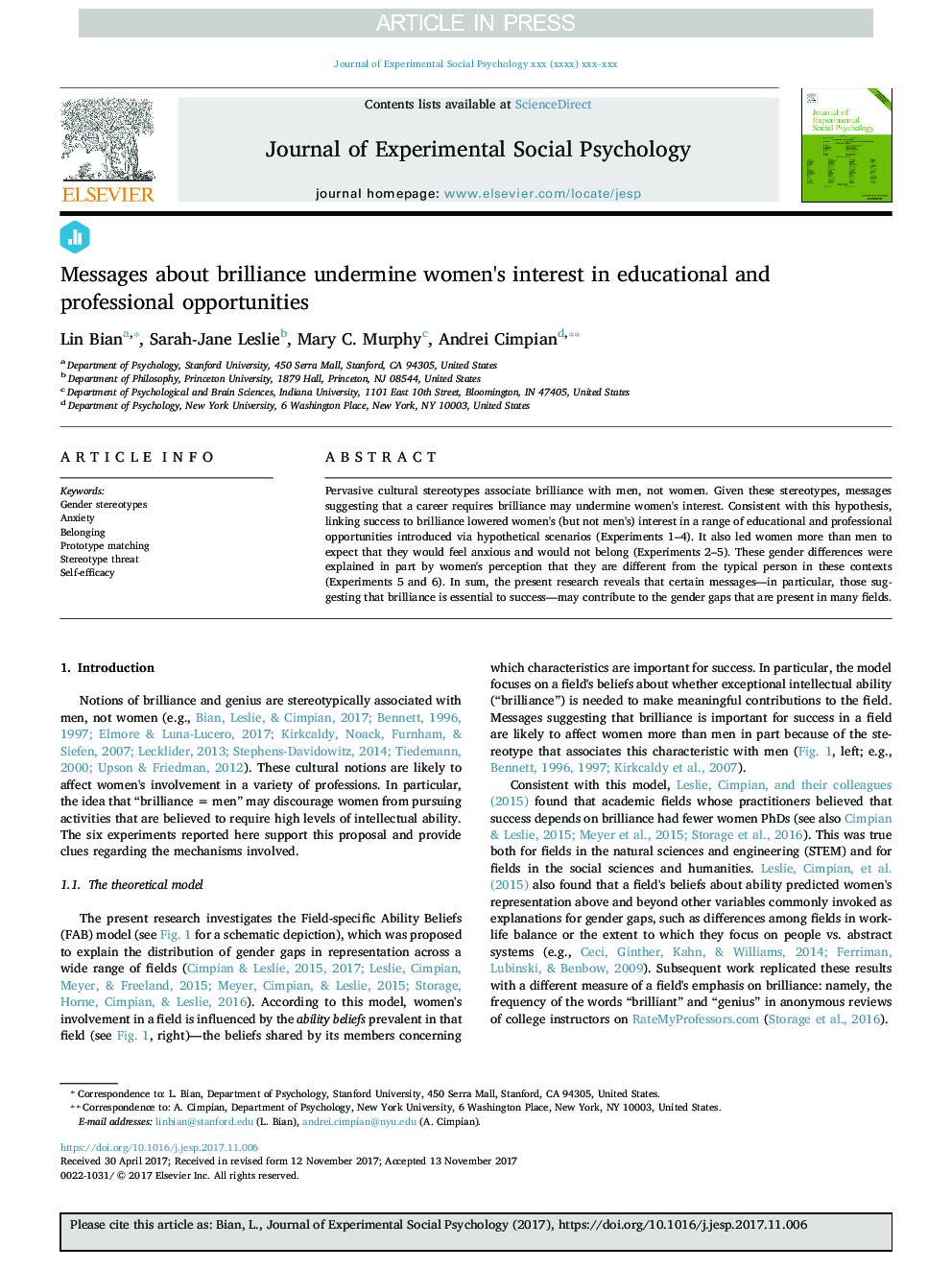| Article ID | Journal | Published Year | Pages | File Type |
|---|---|---|---|---|
| 7324197 | Journal of Experimental Social Psychology | 2018 | 17 Pages |
Abstract
Pervasive cultural stereotypes associate brilliance with men, not women. Given these stereotypes, messages suggesting that a career requires brilliance may undermine women's interest. Consistent with this hypothesis, linking success to brilliance lowered women's (but not men's) interest in a range of educational and professional opportunities introduced via hypothetical scenarios (Experiments 1-4). It also led women more than men to expect that they would feel anxious and would not belong (Experiments 2-5). These gender differences were explained in part by women's perception that they are different from the typical person in these contexts (Experiments 5 and 6). In sum, the present research reveals that certain messages-in particular, those suggesting that brilliance is essential to success-may contribute to the gender gaps that are present in many fields.
Related Topics
Life Sciences
Neuroscience
Behavioral Neuroscience
Authors
Lin Bian, Sarah-Jane Leslie, Mary C. Murphy, Andrei Cimpian,
